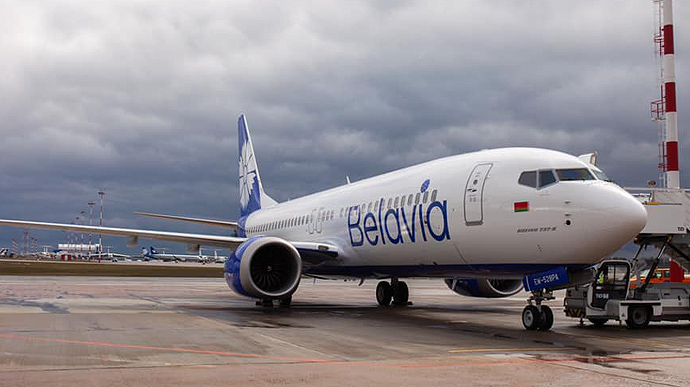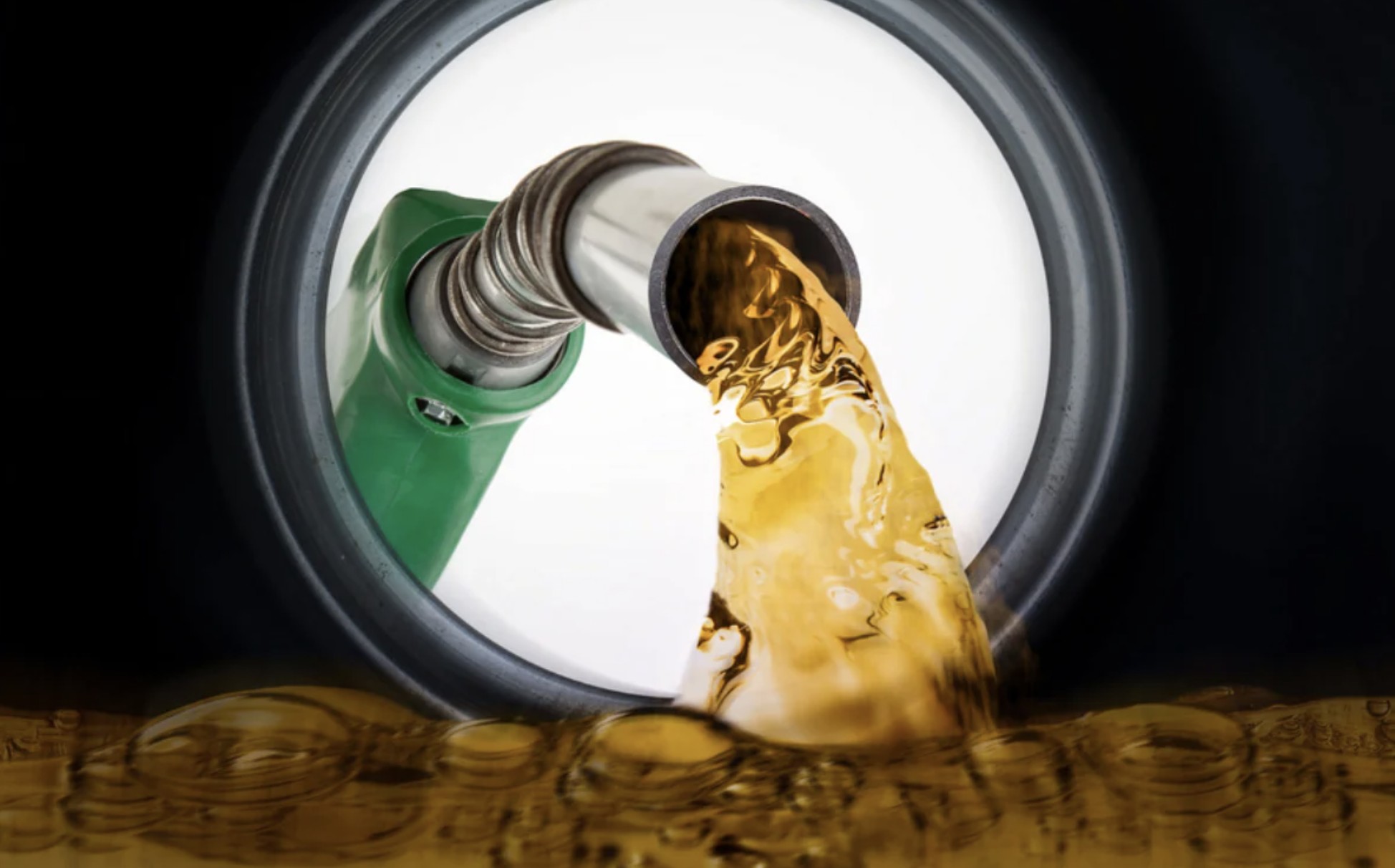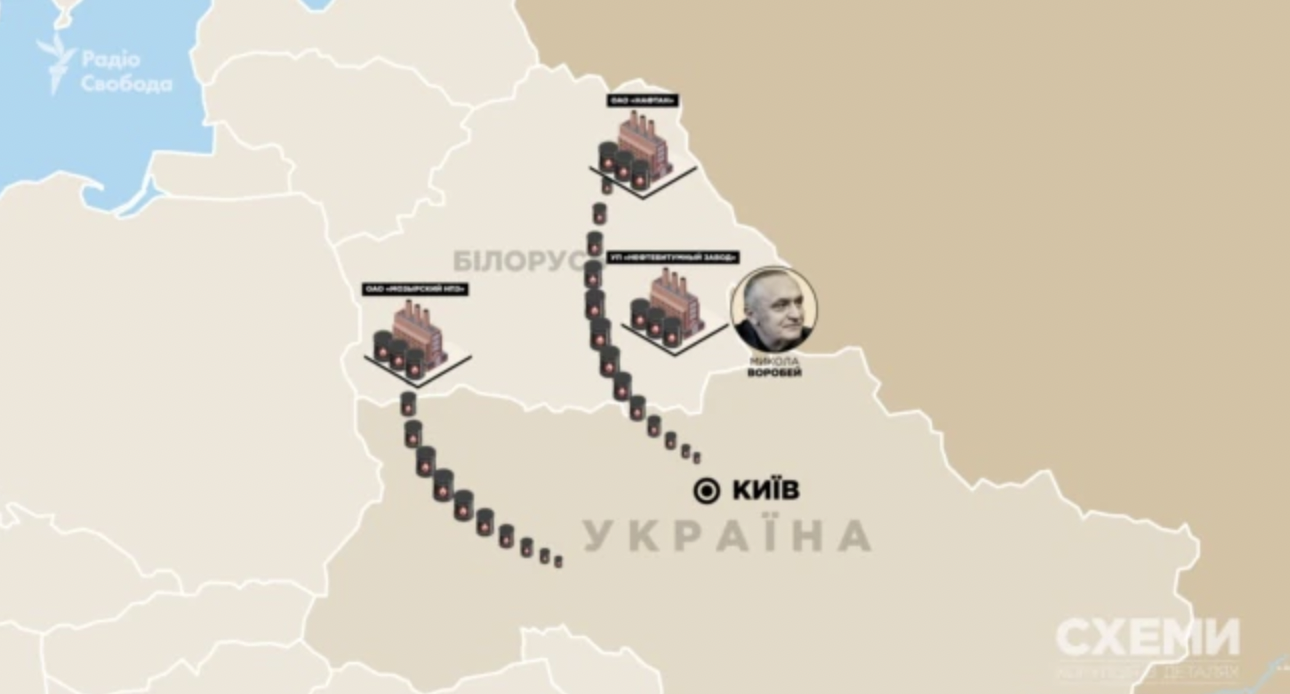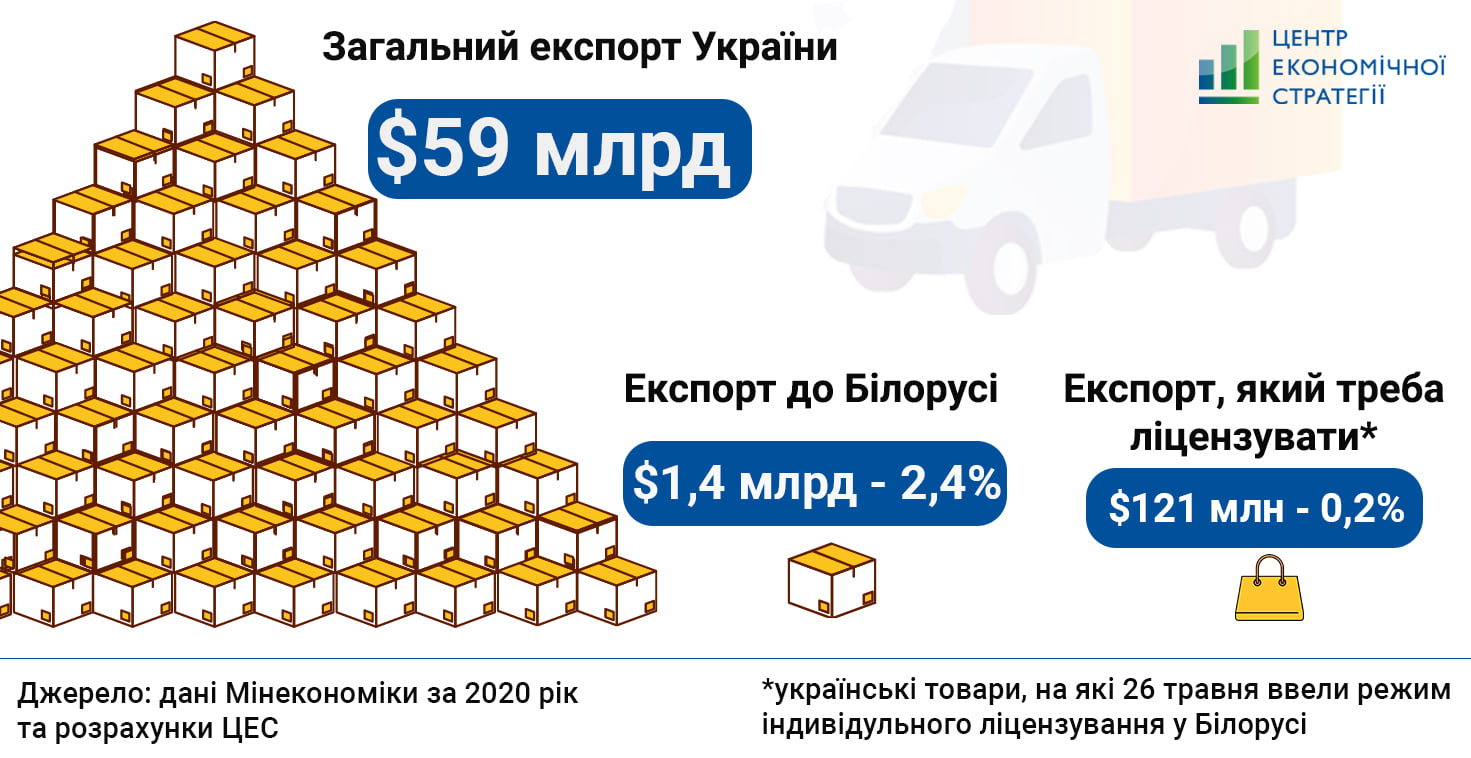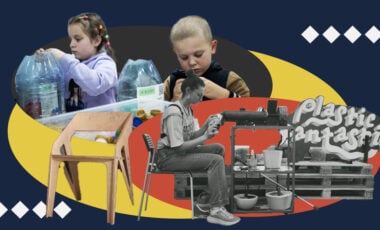Sanctions and gasoline: how Ukraine punishes Lukashenko regime and trades with it
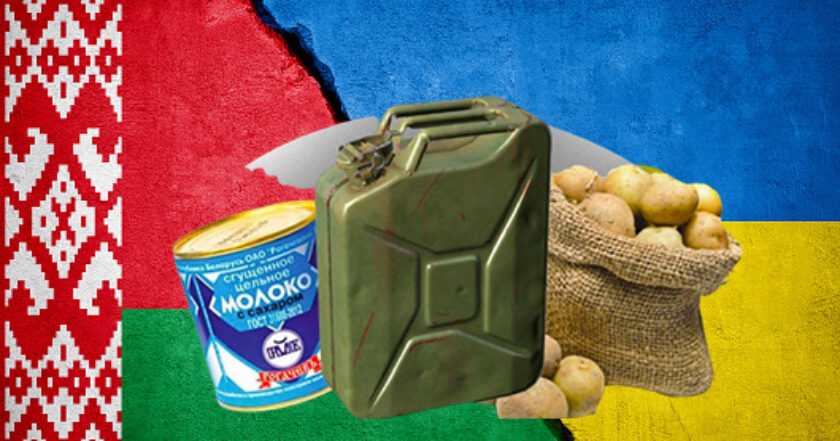
In Ukraine, it may be unnoticeable, but the conflict between the Belarusian ruler Aleksandr Lukashenko and the civilized world is in full swing. It was only on June 25 that the European Union imposed severe sectoral sanctions that hit the Belarusian economy. In response, the dictator organized lines of illegal migrants to Lithuania and took revenge on Ukraine by banning the Kvartal-TV channel (this is not a joke).
Now Western Europeans expect action from Kyiv, but besides pros, we'll have numerous cons, because Ukraine and Belarus are closely linked by the economy. We analyzed how the Ukrainian government will act.
Ukraine imposes sanctions by European standard
On July 7, the Cabinet of Ministers instructed the National Security and Defense Council, which has already gained solid experience and now has a month to launch "Belarusian" sanctions, to "punish the Belarusian dictator for terror against its own citizens."
In total, there are 52 participants on the list, mostly security officers like the head of the Ministry of Internal Affairs of Belarus Ivan Kubrakov, who were previously punished by the European Union. They all face a ban on entering Ukraine and a freeze on assets (which they are unlikely to have here).
In fact, the Office of the President created serious problems for the Lukashenko regime back in May by shutting down flights to Belarus and then banning Belavia from flying over the country. It's not just a beautiful formality, but a heavy blow to the airline.
After all, its top routes were direct flights to Turkey and Egypt; now they have to fly almost across the Caucasus. There was also an anti-Lukashenko statement in the Verkhovna Rada and other diplomatic steps.
But also, according to the Left Bank, the European Union was "seriously interested" in whether Ukraine would support more severe sanctions than the EU. Apparently, they were waiting not only for personal sanctions but also for sectoral ones (hypothetically, a complete ban on buying Belarusian potash or tractors).
By the way, about tractors. We also have a business history superimposed on big politics. It wasn't until April that the Cabinet of Ministers suddenly imposed a 35 percent tariff on Belarusian tractors and buses. They say Minsk creates obstacles for our equipment, so we have the right. Or it's a cunning maneuver: protecting our manufacturer so that the same Kyiv City Council would buy Ukrainian buses and not MAZ buses.
The funny thing is that the decision has already been stopped by the infamous District Administrative Court of Kyiv (the Cabinet can appeal).
But it will be hard for Lukashenko to declare a "trade boycott." Ukraine and Belarus are closely linked by the economy.
It will be more challenging to go with sectoral sanctions. As it turned out, the northern neighbor has become our important trading partner to replace Russia since 2014. As of 2020, Belarus was among the top 10 countries of our exports. Ukrainian companies sold and earned $1.33 billion there, which is more than with the United States, Moldova or Georgia. In general, the trade turnover between the countries amounted to as much as 4.5 billion.
For example, one of the symbols of Ukrainian-Belarusian trade is probably railway cars. In 2019, Belarus became the major buyer of Ukrainian cars: almost 75% of their Ukrainian exports went there, and now the situation has changed little. Our other trading partners, such as Poland and Germany, are reluctant to buy Ukrainian cars. It will be difficult to do without Minsk.
In total, our entrepreneurs received these 1.33 billion for surprisingly different products. For example, Ukrainians imported meat to Belarus (earned $40 million), plastics and polymers ($61 million), ferrous metals and their products ($132 million), reactors, boilers and technical devices ($145 million), paper and cardboard (51 million). The largest amount of money–$144 million–came from exports of seeds and fruits of oil plants, mostly soybeans.
In short, there's no major commodity for Belarus in Ukraine (like oil in Saudi Arabia or Kuwait). On the other hand, many companies trade with their neighbors, and for a particular company, the loss of 5-6 million may be painful (having to look for new markets again).
So far, we know one thing: no one has officially promised sectoral sanctions against Belarus in Kyiv. "Unofficially, diplomats talk about the priority of economic interests over political ones, even with such an issue as relations with the Lukashenko regime," Andrii Starostin, a columnist for the Left Bank, commented. Simply put, the President's Office may take into account the fact that the Ukrainian economy is already in crisis, so why deepen it with a new trade war.
Another thing is that Ukrainians also can't just sit it out on the side. For Kyiv, there's a political choice "who to be with?" That is, either we support the European Union (especially, it's appropriate to stand up for a friendly Lithuania), or we avoid it. And this "puts a damper" on our democratic image.
If we dig deeper, we learn we import two strategic goods from Belarus at once.
If the Kyiv-Minsk relations deteriorate permanently, the "trade front" may arise around two types of commodities: fuel (gasoline, diesel and liquefied gas) and bitumen.
"Gasoline dependence" of our country on Belarus is especially noticeable. According to the A-95 consulting group's data, in 2020, we bought 850 thousand tons of gasoline from Belarusians (it's 30% of everything in Ukraine), 2.2 million tons of diesel fuel, and another 380 thousand tons of liquefied gas. And if you refuel with A-95 gasoline, then know that 50%, every second liter of it, was from Belarus. In short, this country has replaced Russian suppliers for us.
Can Lukashenko "turn off the tap" and cause us to have a fuel collapse with cars that have nothing to refuel? Theoretically, yes, but then our gasoline may rise in price. But in practice, no, because the dependence is mutual. "Ukraine generates the main profit of the Belarusian oil refining, which, in turn, is one of the locomotives of the Belarusian economy," the director of the A-95 group Serhii Kuiun, wrote.
According to his forecasts, the neighbors' refineries won't survive without our customers, so Minsk will not go on shutdown (but we can't punish the dictator by boycotting his oil).
Theoretically, we should be afraid of a "trade blockade" if Putin puts pressure on Lukashenko
Therefore, the already mentioned Serhii Kuiun advises our country to develop its own oil refining. By the way, there are opportunities. Ukrtatnafta, which owns the Kremenchuk Refinery, has previously said it's ready to supply twice as much gasoline and replace the Belarusians.
Ukraine can go even further and minimize this dependence. "It's expedient for the Cabinet of Ministers of Ukraine to put the state program for the reconstruction of its own oil refining facilities into practice and create strategic reserves of oil and oil products," Volodymyr Omelchenko, director of energy programs at the Razumkov Centre, emphasizes.
Additional Ukrainian refineries and new suppliers (for instance, gasoline can be imported to us by sea) will be more profitable for the country, and Lukashenko won't be able to blackmail us.
"Big Construction" program also bears a Belarusian trace
At first glance, bitumen (one of the components of asphalt) isn't as important as gasoline, but it's needed for the "Great Construction" roads, and it's the ultimate project of Volodymyr Zelenskyi's administration. And yes, 50% of bitumen comes from the north.
These imports weigh a lot in all senses: in 2020, Ukrainian companies imported 580 thousand tons of bitumen from Belarus (they also bought it in particular in Italy and Greece). The situation is reminiscent of the gasoline one. As with fuel, Belarusian suppliers, in particular Naftan, Mozyr Oil Refinery and Naftobitumnyi Zavod, have replaced Russians for us.
As with fuel, the President's Office believes Minsk will not allow the team to block exports, as Belarusians make good money on it. "We're a huge customer," Kyrylo Tymoshenko, Deputy Head of the President's Office said. However, according to him, the participants of the "Great Construction" program can almost painlessly change suppliers.
Therefore, Minsk can't blackmail the Ze-team by choosing between sanctions or roads (Serhii Kuiun also confirms the "non-tragedy" of this issue).
The output is still a paradox: there's trade and conflict, but there may be no trade conflict
Most likely, precisely because of the damage to our enterprises, the Ukrainian government hasn't yet introduced sanctions, and it's unknown whether it'll impose severe economic restrictions against the Lukashenko regime. "I believe it's inexpedient for Ukraine at this stage to impose or join economic sanctions against Belarus… Economy is an area that is important for both the people of Ukraine and the people of Belarus," Ukrainian Foreign Minister Dmytro Kuleba stated in 2020.
Moreover, none of the experts gives a forecast yet: will the European-Ukrainian sanctions work? Lukashenko is still a dictator and is unlikely to be afraid of falling ratings or new protests because of the economic collapse (he'll simply suppress them). And if we remember that Russia and China supported the Belarusian leader, then his regime can hold out under restrictions for many years.
And last but not least, can Belarus stop selling us something to avenge Zelenskyi for the sanctions? Apart from bitumen and gasoline, the only really important product we import is potash fertilizers for farmers.
"Nevertheless, reorientation is possible, the only question is the price," Veronika Movchan, an expert at the Institute for Economic Research and Political Communications, says. The rest of the products such as vegetables and plastics can't be called a strategic import.
So Minsk loudly threatened, but so far only created problems for producers of a number of goods, including chocolate, beer, agricultural machinery, wooden boards (this happened back in May). However, even for them, Belarus didn't dare to ban them completely, it's just that our producers now have to get licenses.
The Center for Economic Strategy estimates that last year Ukrainian companies earned $121 million from the export of such goods. But it's only 0.2% of our exports, so the Ukrainian economy won't suffer much damage, even if licensing grows into a ban.
Although it's not a reason for joy, because Lukashenko (for free) reminded everyone that we depended on a country that is close friends with Russia and conducts joint military exercises with the occupiers. And Ukrainians don't import quantum computers, robots and satellites, but goods that our country could actually produce itself, without allowing anyone to "outflow" money from Ukraine.


